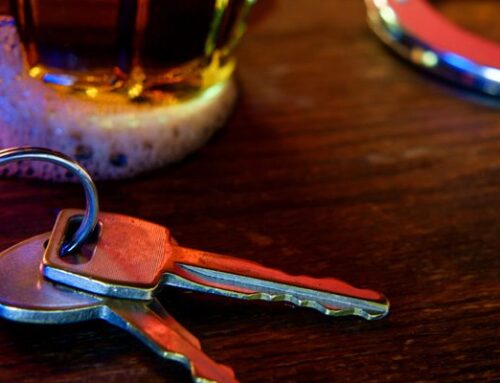Deciding to litigate a DWI first offense has historically been a no-brainer. Unless the prosecutor was willing to reduce charges and offer deferred adjudication on obstructing a highway, for instance, teeing-up a jury trial was almost automatic. What did the client have to lose when the best offer was a DWI conviction? Expunging or sealing the records of a conviction was impossible, anyway. But if deferred adjudication for obstructing was on the table the calculus was much different. Upon successful completion of the deferred the client could apply for a non-disclosure order following the applicable waiting period. Here in Brazos County, neither prosecutors, nor DPS, would object to sealing both the successfully completed deferred and the related DWI arrest records. But the law has now changed regarding the non-disclosure of convictions for certain non-violent misdemeanors and DWIs. As a result, will the new non-disclosure law which permits the sealing of a DWI first conviction, passed in H.B. 3016 and codified in Chapter 411 of the Texas Government Code, change the calculus about trying DWI first cases? I think the answer is negligibly. First, though, let’s look at some details about the new Government Code provisions.
The Texas Government Code has not provided for the non-disclosure of DWI offenses under any scenario. However, on June 15, 2017 the Governor signed H.B. 3016, becoming effective, retroactively, on September 1, 2017. H.B. 3016 authorized a person convicted of a first-time DWI offense, with a BAC less than 0.15, to petition the court for an order of non-disclosure of criminal history related to that offense. The criteria the petitioner must meet are as follows: (1) they never were convicted or placed on deferred for another offense, except traffic offenses punishable by fine only; (2) they successfully completed any community supervision imposed and any term of confinement; (3) they paid all their fines, costs, and restitution and; (4) the appropriate waiting period has elapsed. The new law does not apply to 2nd or 3rd DWI offenses. Nor does it apply to boating or flying while intoxicated or a DWI involving an accident involving another person (including the passenger of the defendant). Certainly, H.B. 3016 made it easier for a person with a low-level non-violent offense, like a DWI first, to obtain employment and become a productive member of society. Under these new circumstances, then, should we be accepting more pleas for DWI and trying fewer jury trials? Put another way, does the client risk losing a non-disclosure opportunity because they decided to litigate their guilt? Again. I think the answer is no. In fact, the new rules may even encourage more jury trials.
H.B. 3016 provided for non-disclosure after either successfully completing a term of community supervision (Tex. Gov’t Code Sec. 411.0731) or after completing a sentence, including any term of confinement imposed. (Tex. Gov’t Code Sec. 411.0736). The waiting period following a successful probation was 2 years or 5 years, depending upon whether interlock was ordered as part of the sentence. The waiting period following a completed term of confinement was 3 years or 5 years, again depending upon whether interlock was ordered as a condition of the sentence. So it seems, if a client decided to try their DWI first offense, the worst consequence may be a variation in the waiting period after completion of their sentence, if any. What if conviction looks inevitable and the client’s goal is to seal their arrest records as quickly as possible? Then a plea bargain for probation with at least 6 months of interlock would help achieve that goal. On the other hand, if the goal was to roll-the-dice on a jury trial, and even shoot for a light jail sentence if convicted, then what does the client lose on a non-disclosure? Not much, it appears. Certainly, not enough to compel them to buckle under to a plea bargain for a DWI conviction.
So, even with the advent of non-disclosure for DWI first convictions, criminal defense lawyers can still push forward and encourage their clients to litigate a DWI first without fear of eliminating non-disclosure opportunity. Regardless of the punishment outcome, a client would eventually become eligible to seal their arrest records, everything else being equal. The bottom line, then, is to not deter a client from saying no to a plea bargain, even if it means getting their arrest records sealed later, rather than sooner.
(“Off the Back” featured in the “Voice For The Defense” September 2017)
Stephen Gustitis is a criminal defense lawyer in Bryan-College Station. He is Board Certified in Criminal Law by the Texas Board of Legal Specialization. He is also a husband, father, and retired amateur bicycle racer.
“Off the Back” is an expression in competitive road cycling describing a rider dropped by the lead group who has lost the energy saving benefit of riding in the group’s slipstream. Once off the back the rider struggles alone in the wind to catch up. The life of a criminal defense lawyer shares many of the characteristics of a bicycle rider struggling alone, in the wind, and “Off the Back.” This column is for them.
Related Posts:
Areas of Practice – Expunction & Non-Disclosure
Background Information on Alcohol-Related Charges
Bond Conditions May Violate Right to Silence
2011 Amendments to Expunction Statute Help Clients
How to Help Your Friend After They Get Arrested







